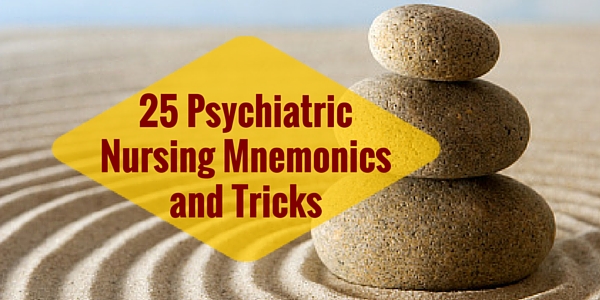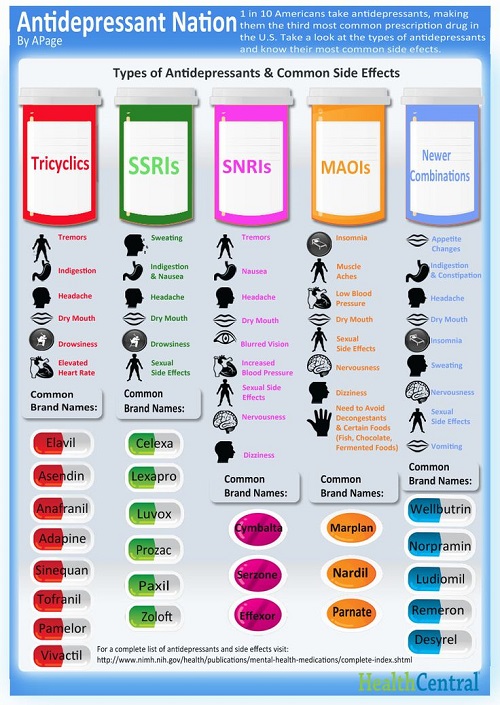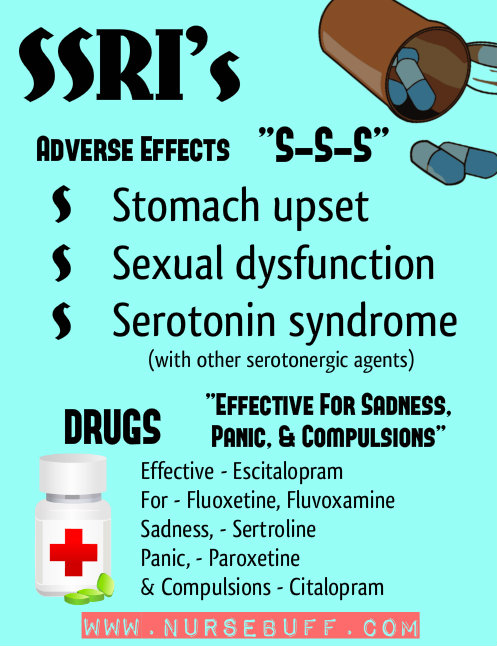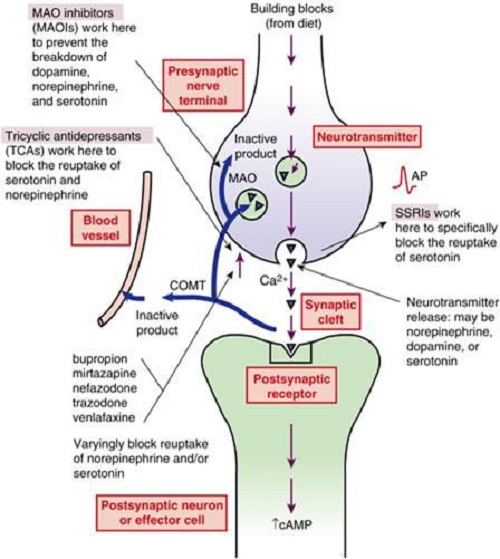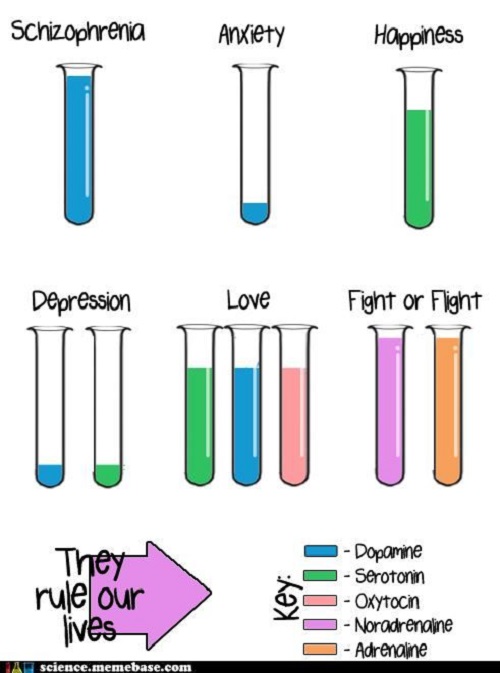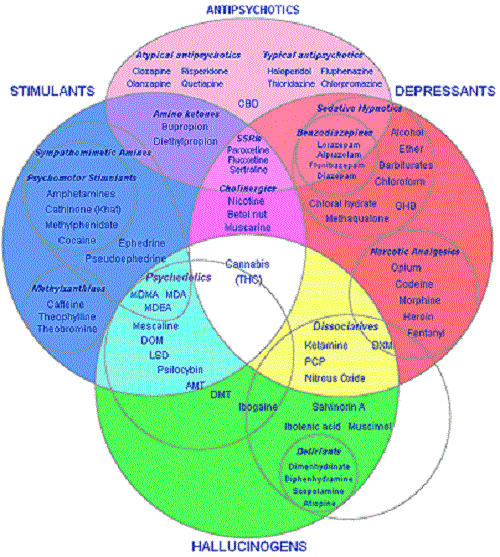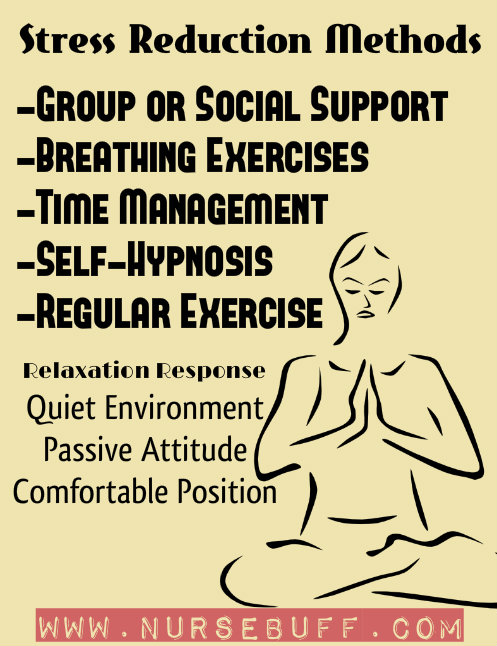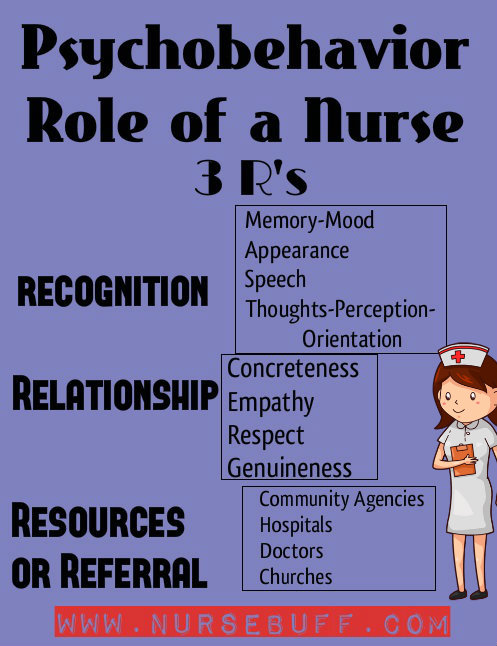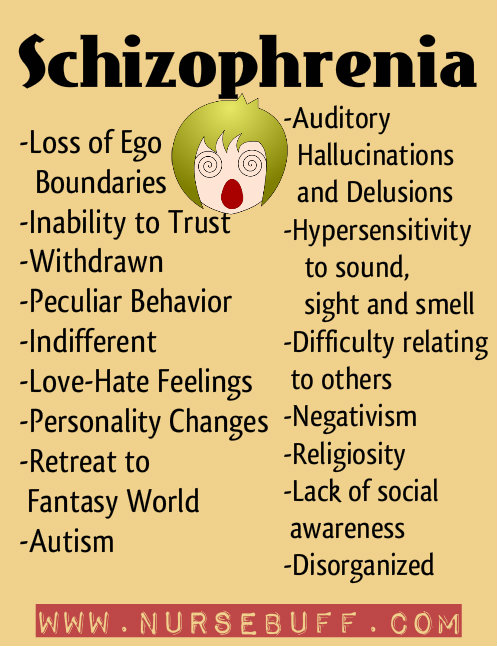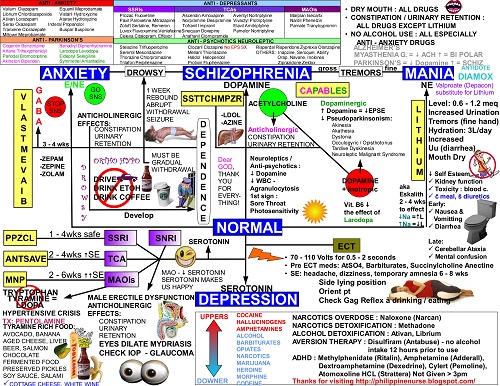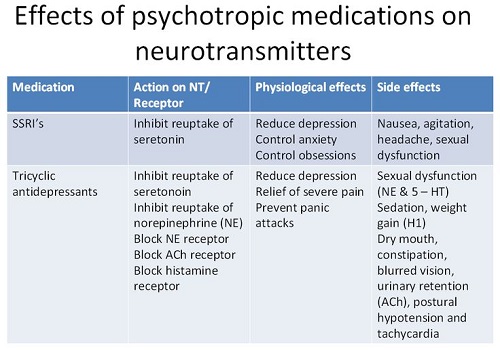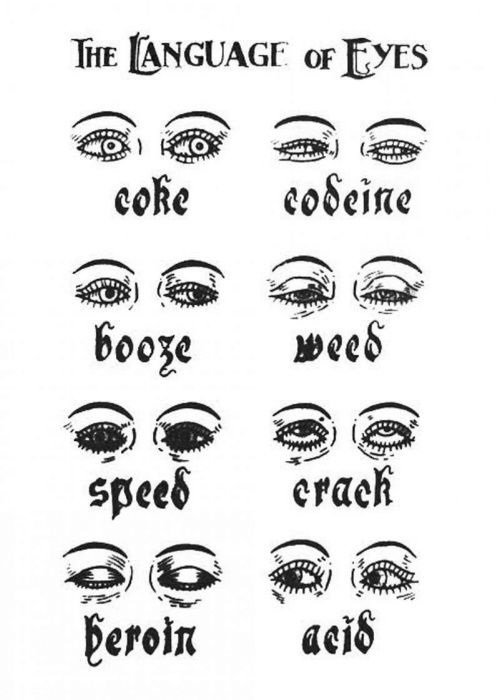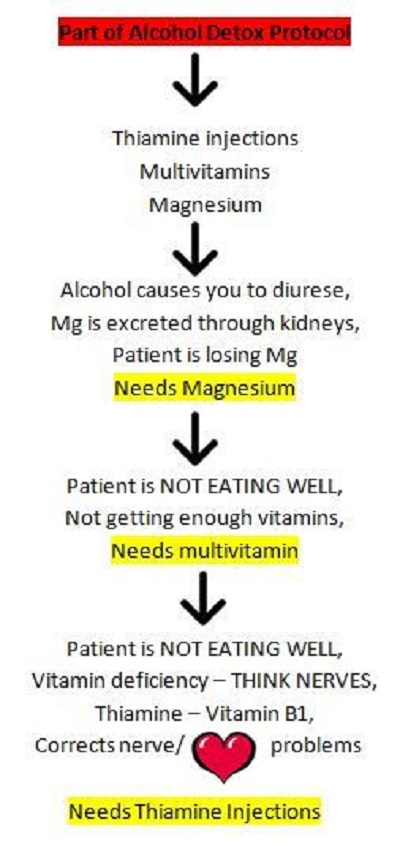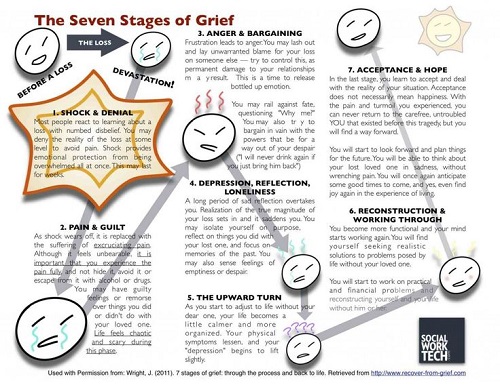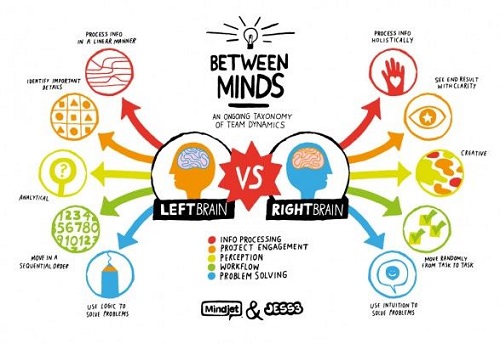Psychiatric Nursing is one of the most challenging nursing subspecialties. Psychiatric nurses care for the patient’s physical wellness and their mental well-being.
Also Read: 50 Mnemonics and Tricks Every Nurse Should Know
There are many mental health problems nowadays and you might find it difficult to memorize the things you need to keep in mind for this subspecialty. To help you understand psychiatric nursing in an easy way, here are some of the most awesome mnemonics and tricks that you should know now.
1. Types of Anti-depressants and Common Side-Effects.
In general, there are five types of anti-depressant, each of which has their respective side-effects. You should watch out for these side-effects as most psychiatric patients take these drugs for long periods of time.
2. SSRIs.
Selective serotonin reuptake inhibitors or SSRIs are commonly used for the treatment of anxiety disorders, depression and some forms of personality disorders. The mnemonic above presents the things you should remember when giving SSRIs to psychiatric patients.
3. Actions of Antidepressants.
With the help of this diagram, you can easily understand how antidepressants work. The antidepressants’ mechanism of action features different stages of nerve absorption as featured in the above image.
4. Color of Drugs.
With this diagram, you can understand the psychological effects of different chemical neurotransmitters or hormones namely dopamine, serotonin, oxytocin, noradrenaline and adrenaline.
5. Psychiatric Drug Diagram.
There are four main psychiatric drugs used nowadays – stimulants, antipsychotics, depressants and hallucinogens. Because there are lots of drugs being developed in these four main psychiatric drug categories, this diagram will help you understand the action of these drugs. It is a helpful study aid if you are just starting in psychiatric nursing.
Also Read: 50 Nursing Mnemonics and Acronyms You Need to Know Now
6. Stress Reduction Methods.
Are you having a hard time in easing down your stressed patient? Here are some of the tricks you can use in reducing patient’s stress. You can advise doing different activities such as meditating, breathing exercises, regular exercise and many more.
7. Psychobehavior Role of a Nurse.
There are 3 Rs in the psychobehavior role of a nurse – recognition, relationship and resources or referral. Applying these 3 Rs in the hospital setting is important especially when counseling patients and their relatives.
8. Schizophrenia.
Schizophrenia is a mental disorder where the patient lives in his own unreal world. Other symptoms include auditory hallucinations, false beliefs, confused thinking and inactivity.
9. Psychiatric Nursing Map.
The above mnemonic is a compilation of the psychiatric assessment points that you should remember. From normal behavior and anxiety to schizophrenia and mania, you can find this chart helpful during reviews and psychiatric assessments.
10. Effects of Psychotropic Medications on Neurotransmitters.
Here is a short table of SSRIs and tricyclic antidepressants. Through this table, you can compare the two drug classifications in terms of action on neurotransmitters, physiological effects and side effects.
Also Read: Laboratory Values and Interpretation – A Nurse’s Ultimate Guide
11. Manic Attack.
The manic attack is present in a variety of mental disorders particularly the bipolar disorder. It is characterized by agility, abnormally excited and irritable mood and grandiosity.
12. Language of the Eyes.
Are you suspecting your patient for drug or substance abuse? Here is a chart featuring the different eye presentations of drug/substance abusers. It is helpful in assessment but diagnosis should be supported by other observed signs and symptoms as well as laboratory examinations.
13. Alcohol Detox Protocol.
Here is a flow of care needed for patients being treated for alcohol intoxication. Usually, a patient intoxicated with alcohol needs 3 drugs – magnesium, multivitamin and thiamine injections. Knowing when to administer these drugs as ordered by the doctor is essential in responding quickly during emergency situations.
14. 7 Stages of Grief.
Emotional support is a critical part of care among psychiatric patients. Here is a diagram featuring the important points to remember when dealing with patients undergoing the seven stages of grief.
15. Between Minds.
Here is an easy-to-remember diagram about the functions and characteristics of each side of the brain. This is a must-know if you are in the fields of personal development, coaching and psychiatric care.
About the Author: Je Abarra is a nurse by profession and a freelance writer by passion. She is currently based in Canada. During her free time, she usually writes about her fascinations in health and nursing. She loves to provide tips and fun facts about nursing and healthy living.


